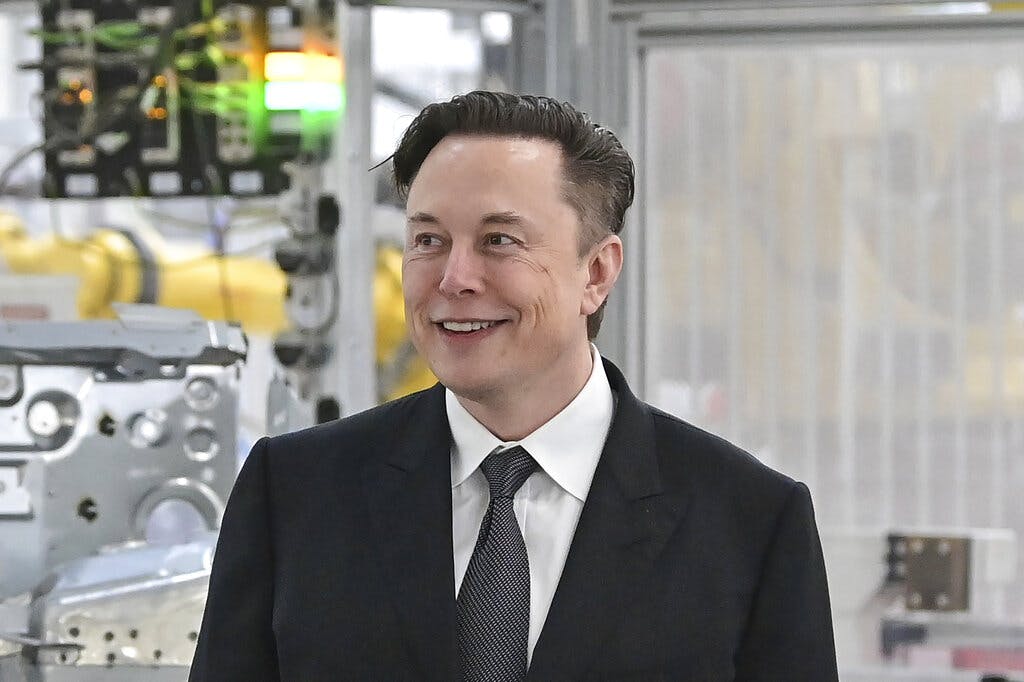South Korea Sells Itself as a Parking Spot for Elon Musk’s Tesla
The country’s president attempts the hard sell on the entrepreneur, who is facing criticism for his close ties to China.

China isn’t the only country in Asia where the entrepreneur Elon Musk might want to set up another plant for building electric vehicles. He’s already facing criticism for his close ties to China, where Tesla is churning out a million vehicles a year in Shanghai, so why not South Korea? That country’s president, Yoon Suk-yeol, more or less asked as much during a telephone chat.
Mr. Yoon gave quite a hard sell, pushing the wonders of Korea’s “world-class auto industry ecosystem and investment conditions,” according to a spokesman. Mr. Musk, said the spokesman, assured Mr. Yoon that he sees Korea “as one of the top investment candidate sites” — out of 10 where he’s thinking of setting up shop.
As it is, Mr. Musk said Tesla would spend more than $10 billion next year on parts made in Korea. Most importantly, he told Mr. Yoon he “would decide following a comprehensive review of Asian candidate countries’ investment conditions” — undoubtedly a careful reference to China.
Tesla in Shanghai has been such a success in terms of sheer output that it’s sending some of its engineers to the company’s plant at Fremont, California. Its automation and control engineers, according to Bloomberg, will be imbuing the Americans with their skills in producing Tesla’s Model S, X, 3, and Y vehicles. Mr. Musk is even thinking of building a second plant at Shanghai, aiming at a total output in China of 3 million vehicles a year.
One downside, though, is suspicions that Mr. Musk has been working too closely with the Chinese. The giant Tencent has paid nearly $1.8 billion for 5 percent of the shares in Tesla, in which Mr. Musk holds about 20 percent. Does Mr. Musk have to go along with the Chinese to get along?
He might feel that way, as the value of Tesla shares has fallen precipitously over the past year. He’s still the richest man on the planet, with a fortune of about $170 billion — but that’s about half of what he was once worth. Factors in the decline include China’s Covid-19 restrictions, skyrocketing prices, and difficulty getting the myriad parts that go into his company’s vehicle.
Mr. Musk may also be a little concerned about the labor problems besetting the company that produces Apple’s iPhones in central China, Foxconn. After mass protests over dismal pay, longer hours, and lack of food and other perks, the company apologized to its 200,000-strong labor force, promising compensation.
In one of those twists that epitomize the complexity of relationships, Foxconn is based in Taiwan, the island province that China claims as its own. As cross-straits tensions rise, Foxconn may be moving out. Mr. Musk aroused the ire of Taiwan leaders — and the applause of the Chinese — for suggesting that Taiwan might want to cede authority. Why not call it an “administrative zone,” he asked.
On the ground in Korea, Mr. Musk is well aware he would face serious opposition from the Hyundai and Kia motor companies. Between them, Hyundai and Kia made more than 3 million vehicles in Korea in 2021. GM Korea in 2021 produced 223,000 vehicles, mostly for export to other countries, including China.
Mr. Yoon, addressing issues raised by foreign investors, reportedly told Mr. Musk he would make sure to bring about reforms in “unreasonable regulations hindering global high-tech innovation firms’ investment in South Korea.” Nothing was said, however, about penetrating a market that largely belongs to Hyundai.

